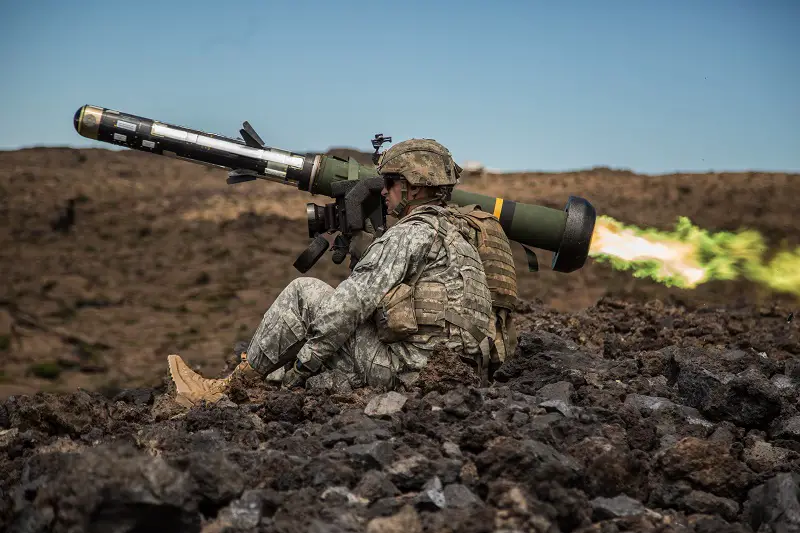The U.S. State Department has greenlit a significant foreign military sale to the Government of Bulgaria, approving the possible transfer of Javelin FGM-148F missiles and related equipment. The deal, valued at an estimated $114 million, marks another step in bolstering Bulgaria’s defense capabilities as a NATO ally. The Bulgarian government is set to acquire 218 Javelin FGM-148F missiles, including four fly-to-buy models, alongside 107 Javelin Lightweight Command Launch Units (LWCLU). The package also includes essential training equipment such as Basic Skills Trainers, Outdoor Trainers, and Battery Coolant Units, alongside a suite of lifecycle support services. Among these are System Integration and Check Out (SICO), technical assistance, Javelin operator manuals, and various forms of gunner, maintenance, and technical officer training. The Javelin system, widely regarded as a game-changer in modern anti-tank warfare, is known for its “fire-and-forget” capabilities, allowing operators to engage armored vehicles and fortifications with minimal exposure.
The State Department emphasized that this proposed sale aligns with U.S. foreign policy and national security objectives by enhancing the military capacity of Bulgaria, a key NATO ally. The addition of Javelin systems to Bulgaria’s arsenal is seen as a significant step in strengthening the country’s long-term defense posture, allowing it to more effectively defend its sovereignty and territorial integrity. The equipment is expected to integrate smoothly into Bulgaria’s existing military framework, ensuring a swift absorption into its armed forces. Despite the substantial scale of the transaction, U.S. officials assure that the deal will not alter the military balance in the region. The prime contractors for the sale are the Javelin Joint Venture, a collaboration between Lockheed Martin, based in Orlando, Florida, and RTX Corporation in Tucson, Arizona. No offset agreements have been reported in connection with this sale.

The FGM-148 Javelin has been a cornerstone of U.S. and allied military operations since it replaced the older M47 Dragon anti-tank missile. The system is designed for portability, ease of use, and survivability on the battlefield. Its top-attack flight profile targets the thinner armor of enemy tanks, while its tandem charge warhead defeats reactive armor, making it highly effective against modern armored vehicles. In combat, Javelins have demonstrated their versatility, being deployed in both top-down attacks against tanks and direct assaults on fortifications. The missile’s “soft launch” system ensures operator safety by ejecting the missile a short distance before its main rocket ignites, minimizing the risk of backblast injuries. Since its combat debut in Iraq in 2003, the Javelin has become a symbol of U.S. anti-tank superiority, and its role in the early stages of the 2022 Russian invasion of Ukraine further cemented its reputation as one of the most reliable and effective anti-tank systems in the world.
The proposed sale of Javelin missiles to Bulgaria represents a crucial investment in regional stability, particularly as tensions in Eastern Europe persist. By strengthening Bulgaria’s defense capabilities, the U.S. continues to fortify the military readiness of its NATO allies, ensuring collective security across the region. This latest development underscores the growing importance of advanced missile systems like the Javelin in modern warfare, particularly in deterring armored threats and enhancing the defensive capacities of smaller, yet strategically important nations like Bulgaria. First introduced in 1996, the Javelin has undergone continuous upgrades, and its proven battlefield effectiveness was recently highlighted during the Russo-Ukrainian War.












